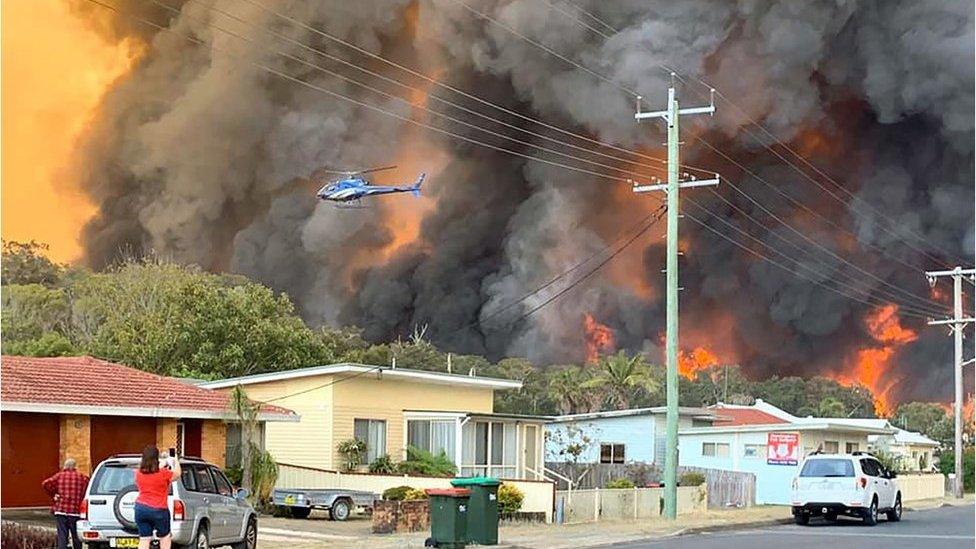National Trust's climate change threat map a 'game-changer'
- Published
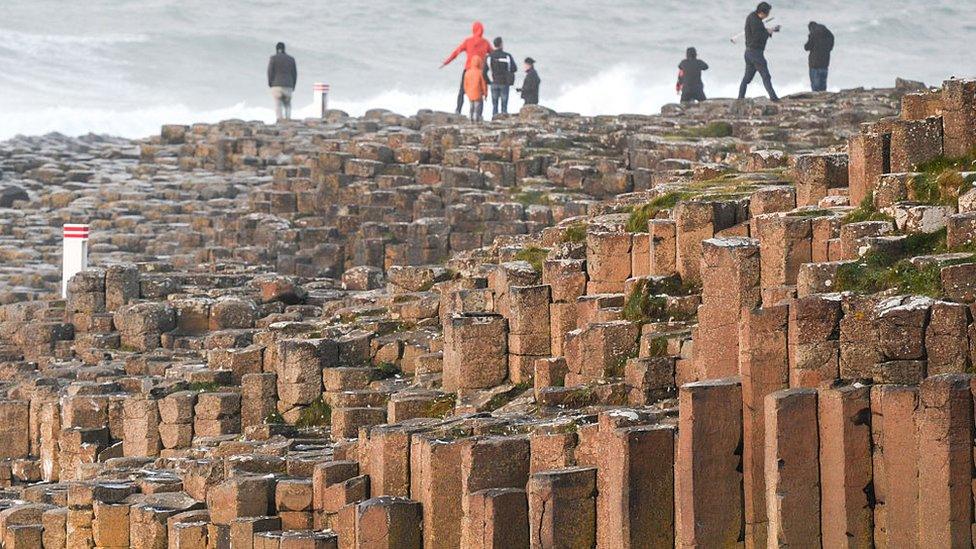
The worst-case scenario map warns of increased coastal erosion and flooding in Northern Ireland, which could lead to more landslides around locations such as Giant's Causeway
A "game-changing" new map shows the threats climate change may have on the UK's stately homes and landscapes.
The National Trust warns the number of its sites facing a high level of threat from issues such as coastal erosion, extreme heat and flooding could rise from 5% to 17% over the next 40 years.
Its map plots a worst-case scenario where nothing is done over that time to drive down global carbon emissions.
The charity says planning for the worst will help it protect sites effectively.
The map, external is intended to help highlight potential future hazards in heritage or countryside sites across England, Wales and Northern Ireland.
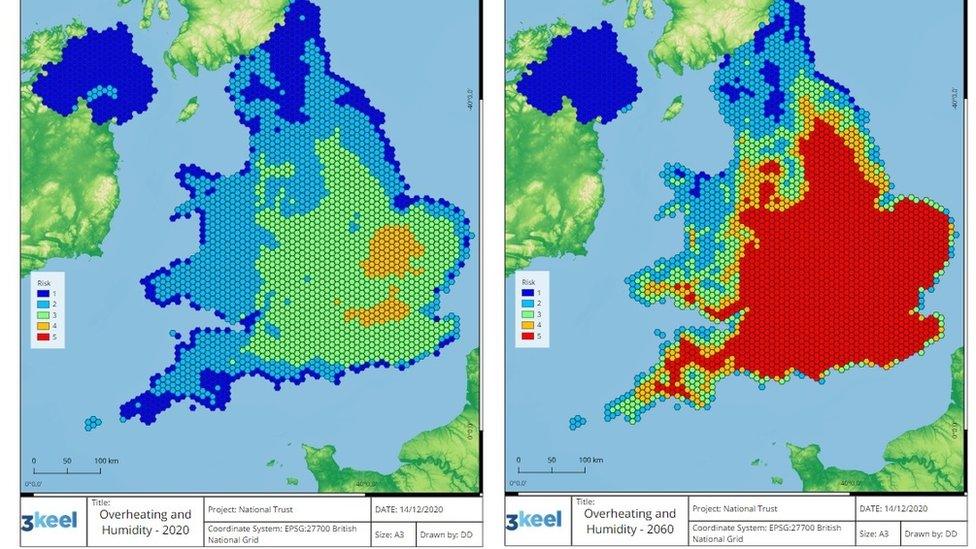
The map shows the different potential climate change threats - including the risk of overheating and humidity
Interventions can then be made to reduce the hazards - such as planting trees to provide shade in higher temperature areas, or restoring peat bogs to prevent flooding.
The worst-case scenario shows:
High heat and humidity would hit the south-east of England, with a third of National Trust sites in the region experiencing at least 15 days above 30C (86F) a year
Storm damage, landslides and flooding would become common and more widespread, particularly in the north of England and Wales
Coastal erosion and flooding will increase in Northern Ireland, potentially leading to more landslides around locations such as the Giant's Causeway
The charity wants to plant 20 million trees before 2030, and said the map will ensure trees are planted where they are needed most.

The National Trust's map can highlight potential hazards to aid intervention - for example, heat-tolerant plants are already being grown at Ham House in London
National Trust director for land and nature Harry Bowell said: "This map is a game-changer in how we face the threat climate change poses to the places we care for.
"While the data draws on a worst-case scenario, the map paints a stark picture of what we have to prepare for. But by acting now, and working with nature, we can adapt to many of these risks."
The charity says staff are already taking action to cope with rising temperatures:
Heat-tolerant plants are being grown at Ham House in London, which the map warns could often face 40C (104F) heat by 2040
At Lyme Park in Cheshire, which was hit by a major flood in 2019, trees are being planted on moorland to slow the flow of water and reduce flooding risks
At Mount Stewart in County Down, where rising sea levels have contributed to coastal erosion, a shelter against incoming water has been made
At Malham Tarn, in the Yorkshire Dales, where a 18th-Century barn collapsed due to soil shrinkage, teams will plant trees and use specific plants to manage the water table
The map plots the impacts of extreme heat and humidity, landslides, coastal erosion, shrinking and shifting ground due to wet and dry conditions known as "soil heave", and high winds, in 2020 and 2060.
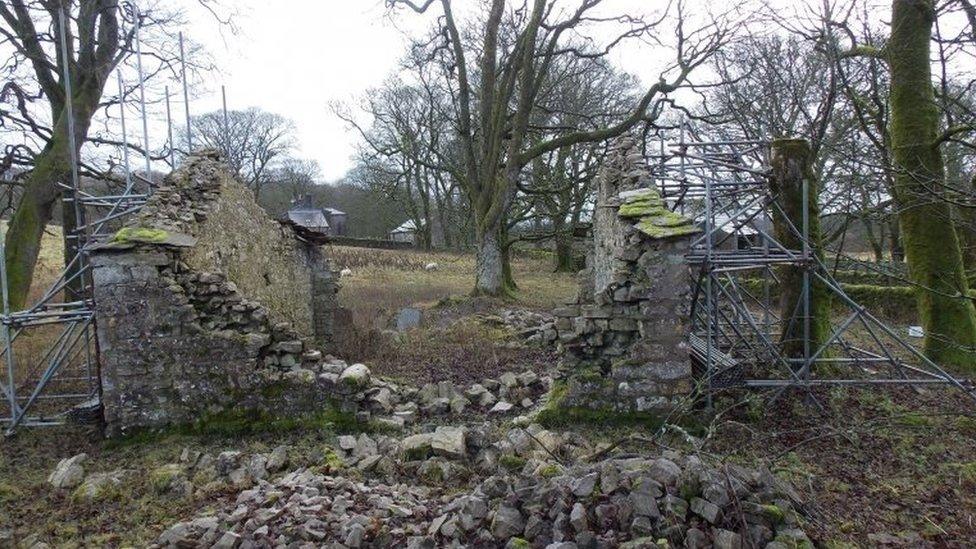
Malham Tarn barn in the Yorkshire Dales collapsed as a result of soil shrinkage
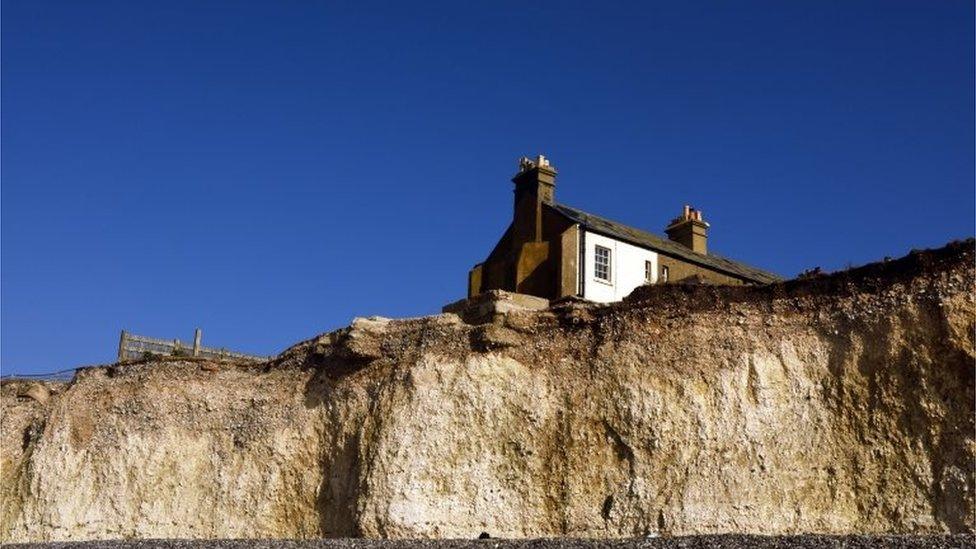
A row of cottages sit near the edge of an eroding cliff at Birling Gap and the Seven Sisters, East Sussex
It uses data from a number of sources and plots them in 5km hexagonal grids across England, Wales and Northern Ireland.
The National Trust is also sharing available data on flooding with staff on properties prone to flooding and action that can be taken, but the information is too localised to be included on the map.
Related topics
- Published23 November 2020

- Published21 January 2020

- Published23 February 2021
